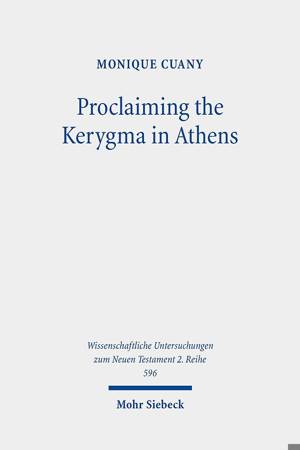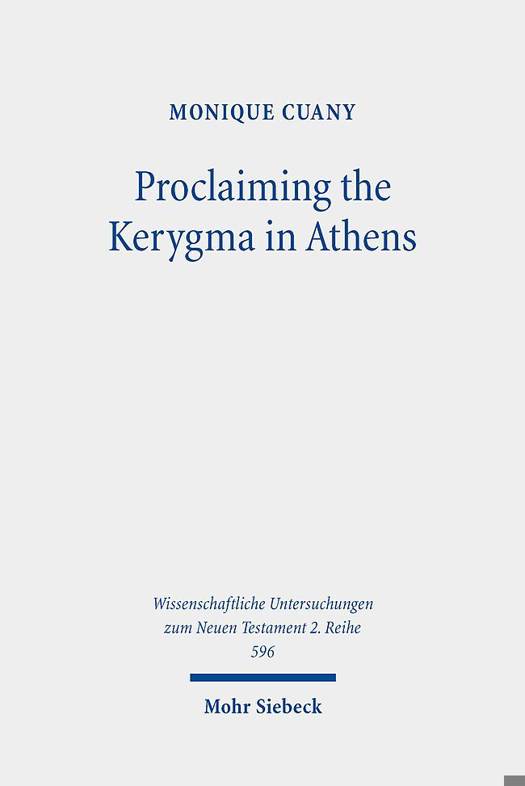
- Afhalen na 1 uur in een winkel met voorraad
- Gratis thuislevering in België vanaf € 30
- Ruim aanbod met 7 miljoen producten
- Afhalen na 1 uur in een winkel met voorraad
- Gratis thuislevering in België vanaf € 30
- Ruim aanbod met 7 miljoen producten
Zoeken
Proclaiming the Kerygma in Athens
The Argument of Acts 17:16-34 in Light of the Epicurean and Stoic Debates about Piety and Divine Images in Early Post-Hellenistic Times
Monique Cuany
Paperback | Engels | Wissenschaftliche Untersuchungen zum Neuen Testament 2. Reihe | WUNT II | nr. 596
€ 88,45
+ 176 punten
Omschrijving
Monique Cuany seeks to answer two major questions which still divide and puzzle commentators with respect to the speech in Athens in Acts 17:16-34: What is the relationship between the speech's main part and its 'Christian conclusion'? And what is the relationship between the speech's message and Greek philosophy? Through an in-depth analysis of the religious and philosophical context alluded to in Acts 17 and a careful verse by verse examination of the speech, the author proposes a new answer to both of these questions. She suggests that the so-called Christian appendix, which has long seemed totally disconnected from the rest of the speech and lacking historical verisimilitude in light of the audience depicted by the narrative, is actually the climax of the argument of the speech and would have been more easily understood by a Greek audience than has been thought in the past.
Specificaties
Betrokkenen
- Auteur(s):
- Uitgeverij:
Inhoud
- Aantal bladzijden:
- 240
- Taal:
- Engels
- Reeks:
- Reeksnummer:
- nr. 596
Eigenschappen
- Productcode (EAN):
- 9783161614279
- Verschijningsdatum:
- 1/08/2023
- Uitvoering:
- Paperback
- Formaat:
- Trade paperback (VS)
- Afmetingen:
- 231 mm x 155 mm
- Gewicht:
- 494 g

Alleen bij Standaard Boekhandel
+ 176 punten op je klantenkaart van Standaard Boekhandel
Beoordelingen
We publiceren alleen reviews die voldoen aan de voorwaarden voor reviews. Bekijk onze voorwaarden voor reviews.











